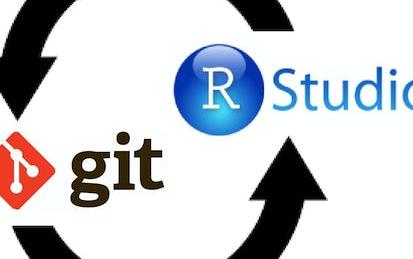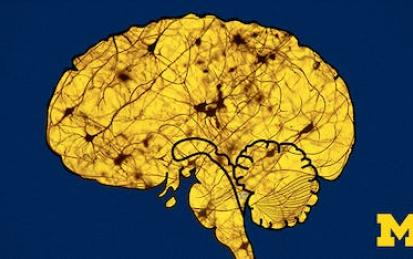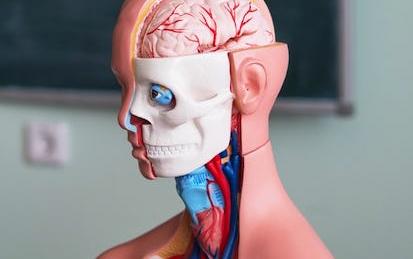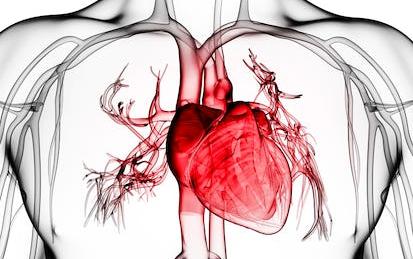

Our Courses

Engineering Health: Introduction to Yoga and Physiology
This course gives you access to an exploration of physiological systems from the perspective of overall health and wellness. In particular, a focus on yoga, meditation and mindfulness as a therapeutic intervention in chronic illness and long term treatment. This course is intended for yoga practitioners and teachers, as well as college students and medical practitioners looking for a deeper understanding of the physiological benefits of yoga.
-
Course by

-
 Self Paced
Self Paced
-
 54 hours
54 hours
-
 English
English

Genomics: Decoding the Universal Language of Life
What is a genome? A genome contains all of the information that a cell needs to develop, function, and reproduce itself, and all the information needed for those cells to come together to form a person, plant, or animal. Genomes contain an organism’s complete set of genes, and also the even tinier genetic structures that help regulate when and how those genes are used. The ability to regrow a torn ligament, the clues that might predict the onset of mental illness, the nutritional potential of crops, and even the history of life itself, are all encoded in genomes.
-
Course by

-
 Self Paced
Self Paced
-
 37 hours
37 hours
-
 English
English

Weight Management: Beyond Balancing Calories
Across the globe, more people are suffering from obesity than at any other time in our history. Why has obesity become so common and so challenging? In this course, we will look at the root cause of obesity, as explained by the latest science. We will see how our food environment has evolved over the last half-century, and how it is altering our biology to over-consume calories and resist sustained weight loss. We will also see how stress, a sedentary lifestyle, and inadequate sleep disrupt our appetite control system to promote gaining weight.
-
Course by

-
 Self Paced
Self Paced
-
 18 hours
18 hours
-
 English
English
Medical Neuroscience
Medical Neuroscience explores the functional organization and neurophysiology of the human central nervous system, while providing a neurobiological framework for understanding human behavior. In this course, you will discover the organization of the neural systems in the brain and spinal cord that mediate sensation, motivate bodily action, and integrate sensorimotor signals with memory, emotion and related faculties of cognition.
-
Course by

-
 Self Paced
Self Paced
-
 71 hours
71 hours
-
 English
English

Introductory Human Physiology
Explore the fascinating world of human physiology and learn about the body's organ systems, their functions, and how they maintain health.
-
Course by

-
 Self Paced
Self Paced
-
 34 hours
34 hours
-
 English
English

Medical Terminology, Anatomy, and Physiology Fundamentals
In this Introduction to Medical Terminology and the Human Body course, you will learn about the medical language that is used to describe the human body. Throughout each Lesson, the roots of terms are explained to help students understand how medical terminology works in healthcare and to increase their knowledge and understanding of the material discussed. This course will provide you with a better understanding and working knowledge of medicine that is required for understanding of medical records used for multiple purposes and job duties in the medical field.
-
Course by

-
 Self Paced
Self Paced
-
 11 hours
11 hours
-
 English
English

Fundamental Human Physiology in Sports Medicine
This is a course on fundamental sports-related musculoskeletal anatomy which provides students with a basic understanding of the musculoskeletal structure and function of different body regions. Topics include an overview of the musculoskeletal system, spine, upper limb, and lower limb.
-
Course by

-
 Self Paced
Self Paced
-
 6 hours
6 hours
-
 English
English

Anatomy & Physiology: Levels of Organization
This course will provide a basic introduction to the human body. It will examine common organizational patterns and terms in anatomy. It will also provide a micro-level view of essential elements and compounds at the atomical and molecular level before expanding to the cellular and tissue levels. Finally, we will look at how tissue can form organs and even an entire organ system with the skin through our look at the Integumentary System. This course provides a strong foundation upon which the future system-based courses in the specialization will build!
-
Course by

-
 Self Paced
Self Paced
-
 10 hours
10 hours
-
 English
English

Medical Terminology and the Human Body Fundamentals
In this Introduction to Medical Terminology and the Human Body course, you will learn about the medical language that is used to describe the human body. Throughout each Lesson, the roots of terms are explained to help students understand how medical terminology works in healthcare and to increase their knowledge and understanding of the material discussed. This course will provide you with a better understanding and working knowledge of medicine that is required for understanding of medical records used for multiple purposes and job duties in the medical field.
-
Course by

-
 Self Paced
Self Paced
-
 11 hours
11 hours
-
 English
English

Visual Perception and the Brain
Learners will be introduced to the problems that vision faces, using perception as a guide. The course will consider how what we see is generated by the visual system, what the central problem for vision is, and what visual perception indicates about how the brain works. The evidence will be drawn from neuroscience, psychology, the history of vision science and what philosophy has contributed. Although the discussions will be informed by visual system anatomy and physiology, the focus is on perception. We see the physical world in a strange way, and goal is to understand why.
-
Course by

-
 Self Paced
Self Paced
-
 14 hours
14 hours
-
 English
English

Non-Alcoholic Fatty Liver Disease – The Essentials
Non-Alcoholic Fatty Liver Disease (NAFLD) is a global problem, affecting up to 25% of all individuals. The disease not only increases the risk of liver disease, but also of cardiovascular disease and liver cancer. During this course, you will learn the essentials of NAFLD. We will begin with an introduction to the physiology of the human liver followed by epidemiology, pathophysiology, clinical medicine, and genetics. Diagnosing NAFLD based on blood tests, diagnostic imaging and histology will be discussed.
-
Course by

-
 Self Paced
Self Paced
-
 English
English

Lymphoedema: Monitoring & Intervention After Breast Cancer
Lymphoedema following breast cancer treatment is a poorly understood and under-researched condition which can significantly impact physical and psychological function, reduce quality of life and result in substantial cost burdens to both patients and the healthcare system. In these interactive modules we will cover an introduction to lymphoedema, lymphatic physiology and anatomy, assessment and treatment, as well as utilise case studies to understand the prospective surveillance and early intervention model of care in breast cancer rehabilitation. This course is brought to you by the Au
-
Course by

-
 Self Paced
Self Paced
-
 8 hours
8 hours
-
 English
English

Equine Welfare and Management
This unique course was developed by veterinarians at the world-renowned University of California, Davis School of Veterinary Medicine. The course will address horsemanship from a welfare perspective, within the context of “The Five Freedoms” of animal welfare. We’ll explore equine physiology, behavior and basic needs including housing, nutrition, hygiene and disease management. You’ll learn how to perform basic tasks to assess the overall condition of the horse and identify problem areas.
-
Course by

-
 Self Paced
Self Paced
-
 18 hours
18 hours
-
 English
English

Science of Fat Metabolism
The term “fat” can be applied to several aspects of health and fitness, from macronutrients in food to tissues in the body, to molecules in the blood. The consumption of fat can be a complex topic due to many different things: fat types, their health effects, the ways fats are metabolized and stored, etc. This course provides a greater understanding of fat-related concepts including the fats consumed in various diets, the physiology of fats within the body, in addition to ways fats are absorbed, stored, and utilized as fuel.
-
Course by

-
 Self Paced
Self Paced
-
 3 hours
3 hours
-
 English
English

Anatomy & Physiology: Regulation, Integration, & Control
This course continues the systems-based approach to human anatomy and physiology at the organ, organ system, and organism level. Two major body systems related to regulation and integration of information will be explored in detail: the nervous and endocrine systems. Course material will cover both the structure (anatomy) and function (physiology) of each system with direct application to human development and disease.
-
Course by

-
 Self Paced
Self Paced
-
 9 hours
9 hours
-
 English
English

Extracellular Vesicles in Health and Disease
This course aims to provide current understanding about extracellular vesicles (EVs) and their role in health and diseases. The EVs are known to be involved in cell to cell communication. Apart from maintaining normal cell physiology, EVs deliver messages that can drive or influence the progression of a disease. This course discusses recent advances made in the field to give an introduction on their function in health as well as in disease.This course includes four modules.
-
Course by

-
 Self Paced
Self Paced
-
 12 hours
12 hours
-
 English
English

Medical Emergencies: Airway, Breathing, and Circulation
In this course, you will develop the knowledge and skills to assess and stabilize certain types of patients for transport.
-
Course by

-
 Self Paced
Self Paced
-
 13 hours
13 hours
-
 English
English

Anatomy & Physiology: Support & Movement
The second course begins the systems-based approach to human anatomy and physiology at the organ, organ system, and organism level. Three major body systems related to support and movement will be explored in detail: the skeletal and muscular systems. Course material will cover both the structure (anatomy) and function (physiology) of each system with direct application to human development and disease.
-
Course by

-
 Self Paced
Self Paced
-
 12 hours
12 hours
-
 English
English

Free Will and Neuroscience
In this course, we will discuss free will from a neuroscientific perspective. Module one of the course will explore two neuroscientific arguments against free will from Libet and Wegner and evaluate neuroscientists’ arguments against free will. You will also examine where these experiments do not succeed in debunking free will. In module two, the anatomy and physiology of neurons will be described. You will also learn how they communicate. You will have an understanding about neural anatomy and physiology to consciousness, attention, and free will.
-
Course by

-
 Self Paced
Self Paced
-
 9 hours
9 hours
-
 English
English

Introduction to Ear, Nose, and Throat Disorders
Otorhinolaryngology is a surgical subspecialty that specializes in management and treatment of conditions relating to the head and neck. Developed at Icahn School of Medicine at Mount Sinai and led by top-ranked otorhinolaryngology faculty and experts, this specialization on ear, nose and throat disorders focuses on the basics of the anatomy and pathophysiology of these regions. This specialization starts with an outline of what patients and professionals need to know about voice disorders.
-
Course by

-
 Self Paced
Self Paced
-
 English
English

Sleep: Neurobiology, Medicine, and Society
The objective of this course is to give students the most up-to-date information on the biological, personal, and societal relevance of sleep. Personal relevance is emphasized by the fact that the single best predictor of daytime performance is the quality of the previous night's sleep. The brain actively generates sleep, and the first section of the course is an overview of the neurobiological basis of sleep control. The course provides cellular-level understanding of how sleep deprivation, jet lag, and substances such as alcohol, ,caffeine, and nicotine alter sleep and wakefulness.
-
Course by

-
 Self Paced
Self Paced
-
 21 hours
21 hours
-
 English
English

Human Anatomy & Physiology I
In this specialization, you will receive an introduction to human anatomy and physiology! Together, we will explore foundational concepts as well as the structure (anatomy) and function (physiology) of the human body as it pertains to five major body systems: the integumentary (skin), skeletal, muscular, nervous, and endocrine (hormone) systems. These courses will utilize a free, open-source text (https://openstax.org/details/books/anatomy-and-physiology-2e)with supplemental activities and applications.
-
Course by

-
 Self Paced
Self Paced
-
 English
English

Sensory Science: The Senses
Humans are amazing sensors! This course will help you understand our sensing capabilities including taste, olfaction, tactile senses, vision, and audition. The course will explain at a high-level the anatomy, physiology, and chemistry of the senses and give you an appreciation of how senses are transmitted to, and experienced by, the brain. You’ll learn by experience to assess cases such as dysfunctions in olfaction or tactile temperature adaptation. Optional podcast conversations with experts in the field are included each week to provide additional insight on our senses and sensory research.
-
Course by

-
 Self Paced
Self Paced
-
 13 hours
13 hours
-
 English
English

Vital Signs: Understanding What the Body Is Telling Us
The vital signs – heart rate, blood pressure, body temperature, respiration rate, and pain – communicate important information about the physiological status of the human body. In this six-part course we explore the anatomy and physiology underlying the vital signs so that you will develop a systematic, integrated understanding of how the body functions. Relevant body systems are reviewed including cardiovascular and respiratory, followed by explanations of how the function of these systems affects vital signs.
-
Course by

-
 Self Paced
Self Paced
-
 14 hours
14 hours
-
 English
English

Voice Disorders: What Patients and Professionals Need to Know
Welcome to Voice Disorders: What Patients and Professionals Need to Know Knowledge regarding vocal production physiology and management options for voice disorders have experienced rapid growth over the past 40 years. This growth has resulted in a knowledge gap amongst patients and practitioners.
-
Course by

-
 Self Paced
Self Paced
-
 6 hours
6 hours
-
 English
English



